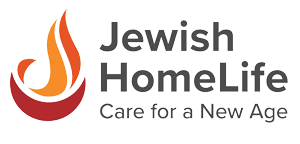One of the biggest factors one has to consider when looking for assisted living in Georgia is the cost. In 2018, the average daily cost of a private room in a nursing home in Georgia was $223 a day, or over $81,000 a year. This is a staggering figure that not many can afford.
The good news is, even if the cost for assisted living feels overwhelming, you are not out of options. Below, we break down some of the most common questions about Medicare and Medicaid in relation to assisted living and long-term care in the state of Georgia, and give you answers and solutions.
What is the difference between Medicare and Medicaid?
Before determining whether Medicaid or Medicare covers assisted living, make sure you know the differences between Medicare and Medicaid.
Medicare is a medical insurance program for people aged 65 or older, or younger people with disabilities who meet certain qualifications. Medicare has two parts, Part A and Part B. Medicare Part A, which covers hospital care, is free for most people enrolled. Part B, also known as Medicare insurance, covers services like doctor visits, diagnostics, and preventive care, and charges participants a premium.
Medicaid is an assistance program for medical expenses of people who qualify as low income. As of 2022, the maximum income for one person to qualify for Medicaid is $2,135 a month, or $25,616 a year. You may also be eligible for Medicaid if you are both low income and are pregnant, a child or teenager, 65 or older, legally blind or disabled, or in need of nursing home care.
Does Medicare or Medicaid pay for assisted living?
In Georgia, Medicaid will not fund assisted living even for medically needy or low-income seniors. It only covers skilled nursing care. What Medicaid covers depends on the state you live in, and the facility you choose. Each facility is different in terms of pricing and coverage, and 72% of nursing home residents in Georgia use Medicaid to pay for their nursing home care. These individuals are not all indigent. Many saved diligently for retirement but have begun to outlive their savings thanks to medical advances and technology.
Medicare, on the other hand, does not fund long-term care, but it does cover short-term rehab in a skilled nursing center. Medicare can cover a short-term stay in a skilled nursing or rehab facility for up to 100 days following a severe injury or minor surgery. There is a 3-day minimum hospital stay requirement, and it must be prescribed through a physician. After 100 days, the rest of the payment is up to you.
What does Medicaid cover in Georgia?
While assisted living coverage through Medicaid differs from state to state and by program, all states offer some degree of coverage for personal care services. Georgia recently passed The Georgia Caregivers Act, legislation that offers some relief to families related to care. The Medicaid SOURCE waiver can also provide low-income seniors with in-home care services such as nursing & personal care at no cost to eligible adults.
There are also options for retired military called the Aid and Attendance benefit, and long term care insurance can cover some or all of the cost.
What are some options for assisted living in Georgia?
Jewish HomeLife has two assisted living communities in our network: The Cohen Home and Berman Commons. Each is more than just a facility, but a home, where residents become family and experience customized care in a supportive environment dedicated to their health and happiness. Both The Cohen Home (Johns Creek) and Berman Commons (Dunwoody) are open to all and conveniently located near all north Atlanta suburbs like Alpharetta, Cumming, Milton, Roswell, Sandy Springs, Buckhead, East Cobb, Marietta, Norcross and Lawrenceville.
Both The Cohen Home and Berman Commons offer memory care and are Hearthstone-certified I’m Still Here® Centers of Excellence. As the only Hearthstone-certified centers in Atlanta, The Cohen Home and Berman Commons embody a philosophy of dementia care that is based on the belief that every individual living with memory loss is still there underneath, and deserves to live a quality, dignified life.
For those whose only option is Medicaid, Jewish HomeLife’s flagship community, The William Breman Jewish Home, reserves approximately half their available long-term beds for Medicaid recipients. The waiting list can be long, but the application is easy. The Home also welcomes residents who are not on Medicaid, as well as those needing short-term rehab covered by Medicare through their Aviv Rehabilitation Center.
To learn more about The Cohen Home and Berman Commons, and other communities and services in the Jewish HomeLife network, please feel free to browse the rest of our website, or contact us today.
